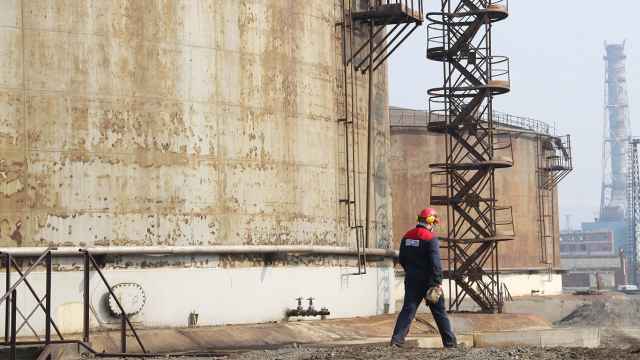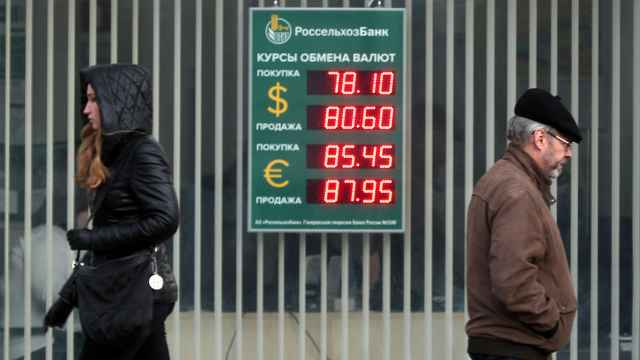OPEC has made a planned cut in oil output effectively conditional on the contribution from non-OPEC producer Russia, delegates said on Thursday as the group gathered in Vienna for a meeting aimed at supporting battered oil prices.
Five delegates said the group was waiting for news from Russia as Energy Minister Alexander Novak had flown back from Vienna for a possible meeting with President Vladimir Putin.
Novak returns to Vienna on Friday for talks between OPEC and its allies, following discussions among OPEC producers on Thursday.
"I am optimistic. There will be a deal, but it is unclear how much OPEC and how much non-OPEC will contribute. It is still under discussion," one delegate said.
Three delegates said OPEC and its allies could cut output by 1 million barrels per day if Russia contributed 150,000 bpd of that reduction. If Russia contributed around 250,000 bpd, the overall cut could exceed 1.3 million bpd.
"The cut will be between 1.0 and 1.3 million bpd. We just have to see how it will be distributed," another delegate said.
Novak said on Thursday that Russia would find it harder to cut oil output in winter than other producers because of the cold weather.
The Middle East-dominated Organization of the Petroleum Exporting Countries plans to cut output despite pressure from U.S. President Donald Trump to support the global economy by keeping oil prices low.
OPEC's de facto leader, Saudi Arabia, has indicated it wants the organization and its allies to curb output by at least 1.3 million bpd, or 1.3 percent of global production.
Riyadh wants Moscow to contribute at least 250,000-300,000 bpd to the cut but Russia insists the amount should be only half of that, OPEC and non-OPEC sources said.
The cuts would take September or October 2018 as baseline figures and last from January to June, Oman's Oil Minister Mohammed bin Hamad Al-Rumhy said on Wednesday.
Oil prices have crashed by almost a third since October to around $60 per barrel as Saudi Arabia, Russia and the UAE have raised output since June after Trump called for higher production to compensate for lower Iranian exports.
On Thursday, Brent futures fell more than 2 percent as traders began to doubt OPEC would deliver a significant cut.
Russia, Saudi Arabia and the United States have been vying for the position of top crude producer in recent years. The United States is not part of any output-limiting initiative due to its anti-trust legislation and fragmented oil industry.
Trump raises pressure
Iranian exports have plummeted after Washington imposed fresh sanctions on Tehran in November. But Washington gave sanctions waivers to some buyers of Iranian crude, further raising fears of an oil glut next year.
"Hopefully OPEC will be keeping oil flows as is, not restricted. The world does not want to see, or need, higher oil prices!" Trump wrote in a tweet on Wednesday.
Possibly complicating any OPEC decision is the crisis around the killing of journalist Jamal Khashoggi at the Saudi consulate in Istanbul in October. Trump has backed Saudi Crown Prince Mohammed bin Salman despite calls from many U.S. politicians to impose stiff sanctions on Riyadh.
"We think OPEC will spend some time to choose the words being used. Being too cautious on the words, to please President Trump, runs however the risk of diluting the message," said Olivier Jakob from Petromatrix consultancy.
A Message from The Moscow Times:
Dear readers,
We are facing unprecedented challenges. Russia's Prosecutor General's Office has designated The Moscow Times as an "undesirable" organization, criminalizing our work and putting our staff at risk of prosecution. This follows our earlier unjust labeling as a "foreign agent."
These actions are direct attempts to silence independent journalism in Russia. The authorities claim our work "discredits the decisions of the Russian leadership." We see things differently: we strive to provide accurate, unbiased reporting on Russia.
We, the journalists of The Moscow Times, refuse to be silenced. But to continue our work, we need your help.
Your support, no matter how small, makes a world of difference. If you can, please support us monthly starting from just $2. It's quick to set up, and every contribution makes a significant impact.
By supporting The Moscow Times, you're defending open, independent journalism in the face of repression. Thank you for standing with us.
Remind me later.






